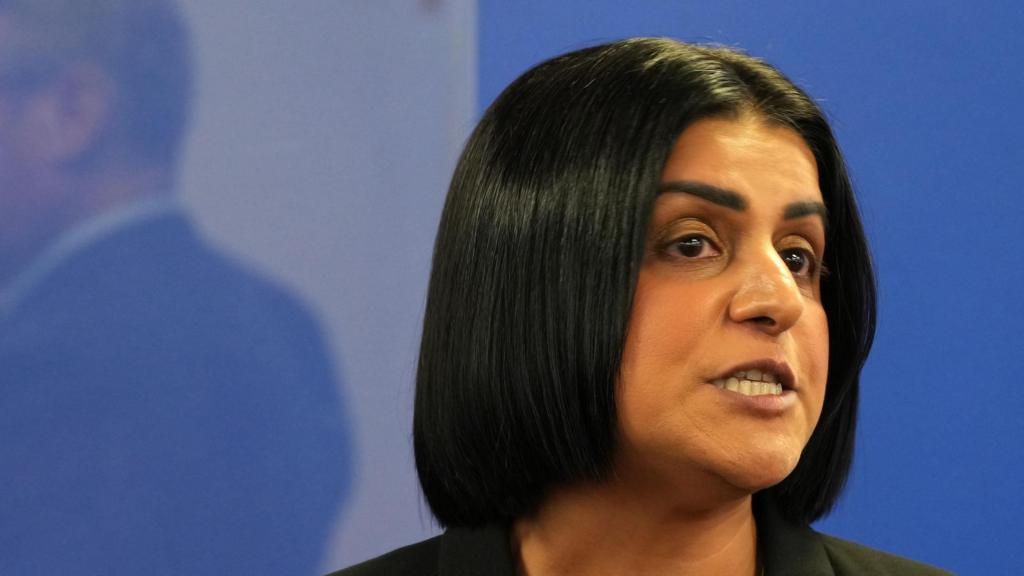In a significant policy shift, the UK Home Secretary is expected to announce Monday that individuals granted asylum will only receive temporary leave to remain.
Shabana Mahmood is poised to declare an end to permanent protection for refugees, aiming to curb asylum claims and small boat crossings, according to sources familiar with the matter.
Under the proposed plans, asylum recipients will be repatriated to their country of origin once it is deemed safe, with their status subject to regular reviews.
Currently, refugee status in the UK is granted for five years, after which individuals can apply for indefinite leave to remain, paving a path to citizenship.
Temporary schemes are in place for those fleeing the conflict in Ukraine, initially for three years, with subsequent extensions granted.
Government insiders have characterized the move toward temporary status for all successful asylum seekers as a “significant shift” in policy.
The policy draws inspiration from Denmark, where a center-left Social Democrat-led government has implemented one of Europe’s most stringent asylum and immigration systems.
Denmark issues temporary residence permits, typically for two years, requiring refugees to reapply for asylum upon expiration.
A previous presumption in the Danish system to extend permits has been abolished.
Even for those who are allowed to extend multiple times, the route to citizenship has grown longer and harder.
UK government ministers, including Mahmood, reportedly admire the Danish approach, noting that the Social Democrat party’s hardened immigration policies correlated with increased poll ratings and a decline in support for the populist right-wing People’s Party.
The Home Secretary believes that failure to adopt similar measures could lead to the rise of “darker forces” in the UK.
Last week, the BBC reported that Mahmood dispatched senior Home Office officials to Denmark to study their system firsthand.
Beyond temporary status for refugees, officials also examined Denmark’s stricter regulations on “family reunion,” which govern the process for refugees seeking to bring spouses, partners, or children to the country.
Mahmood believes Denmark’s policies disincentivize asylum seeking and is impressed that successful claims are at a 40-year low.
She also contends that the perceived generosity of the UK system acts as a magnet, fueling small boat crossings.
In a social media video previewing her announcement, Mahmood stated, “We will always be a country that gives sanctuary to people who are fleeing danger but we must restore order and control.”
However, emulating Denmark too closely could prove controversial.
Four years ago, the Danish government planned to return approximately 200 refugees to Syria, despite the ongoing civil war, claiming that certain areas of Damascus were safe.
Mahmood’s new approach is expected to face opposition from some Labour MPs.
When reports surfaced that Denmark was being used as a model for stricter rules in the UK, Labour’s Clive Lewis told the BBC that the system in that country echoed “talking points of the far right.”
He added that “progressive” voters might gravitate toward more left-wing parties, such as the Greens, if Labour pursues this course.
Another Labour left-winger, Nadia Whittome, described following in Denmark’s path as a “dead end – morally, politically and electorally.”
However, the BBC understands that Mahmood will issue a warning to her skeptical Labour colleagues in a speech to Parliament on Monday.
She is expected to suggest that while some of her plans may seem immoderate, the alternative could be a further rise in support for Reform UK.
She is expected to say: ‘”If you don’t like this, you won’t like what follows me.”
The Home Secretary believes Denmark is an example to emulate because its asylum policy – summed up as “less in more out” – has been achieved while remaining inside the European Convention on Human Rights (ECHR).
But both she and her opposite number in Denmark – Rasmus Stoklund – want to see reforms and to rein in “activist judges” who might give too much emphasis to the ECHR’s provisions on “rights to a family life” when deciding on deportation cases.
She is expected to address this in her statement on Monday.
Both Reform UK and the Conservatives argue that it would be more effective to leave the ECHR entirely.
And rather than giving refugees temporary status, Reform UK say they would detain and deport cross-channel arrivals.
The Conservatives argue that the only way to stop small boats is to bring back their scheme to deport asylum seekers to Rwanda, which was scrapped by Labour.
The home secretary is likely to acknowledge on Monday that the UK’s borders are “out of control”.
Simply adopting new policies is unlikely in itself to restore the trust of voters tempted by Nigel Farage.
But if Mahmood’s policies actually reduce numbers, she will hope her party will be granted permission to be heard not just on migration but on other policies too.
The man was detected by biometrics, detained immediately, and will be deported as soon as possible, the Home Office says.
Home Secretary Shabana Mahmood is taking cues from some of the toughest migration laws in Europe.
Officers say there appear to be cases where lines of inquiry were not pursued properly.
The home secretary speaks to the BBC while overseeing a police operation in south London aimed at tackling illegal working.
The Home Office says it is part of the “largest crackdown on illegal workers since records began”.

